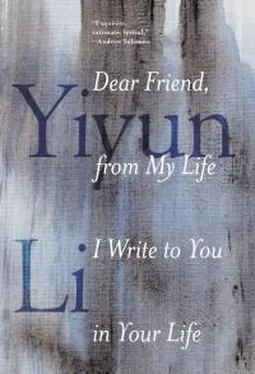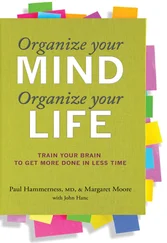—
THE FIRST EVENING in Ireland I took a walk by the Shannon. Other than a lone fisherman and a moored boat, there were few reminders of the human world. Were the waterbirds, the reeds, the falling dusk, and the foreign sky enough proof that life was worth living? Across the river were hilly meadows, and beyond, the lanes McGahern wrote about.
A maze of lanes link the houses that are scattered sparsely about these fields, and the lanes wander into one another like streams until they reach some main road. These narrow lanes are still in use. In places, the hedges that grow on the high banks along the lanes are so wild that the trees join and tangle above them to form a roof, and in the full leaf of summer it is like walking through a green tunnel pierced by vivid pinpoints of light….
There are many such lanes all around where I live, and in certain rare moments over the years while walking in these lanes I have come into an extraordinary sense of security, a deep peace, in which I feel that I can live for ever.
I underlined the words “an extraordinary sense of security, a deep peace” and then did something violent: I hurled the pen into the water. It sank soundlessly, and I regretted the action right away. I had never in my life harmed or destroyed an object out of uncontrollable emotions: not a door slammed, not a plate or a cup smashed, not a piece of paper torn into pieces. I must have inherited this respect for things from my father, who is a hoarder, though I have resisted forming an attachment to any object, or any place. I wished then and I wish now that I had never formed an attachment to anyone in the world either. I would be all kindness. I would not have done anything ruinous. I would never have to ask that question—when will I ever be good enough for you?—because by abolishing you, the opposite of I, I could erase that troublesome I from my narrative, too.
I stayed by the river until it was too dark to read on. The wounds McGahern reopened in his memoir are not the kind to be healed, forgotten, or worn as a badge of honor through hardship; in laying them bare (yet not raw), he seems to acknowledge that he misses the good things taken from him and wants them back. There is no greed in this wanting—greed comes from lack and a desire to be rid of it by any means. He is at peace with wanting. Perhaps this is why the memoir is always difficult for me to read. If there are things lacking in my life—and there are, as is the case for everyone—I have resolved never to want them. This must be greed too; wanting nothing is as extreme as wanting everything.
The lanes described in his memoir—with flowers that never failed to blossom, with siblings and a mother who walked together day after day before illness and death disrupted them—are not so different from the paths I had known in Beijing. Garden Road was an asphalt road with ditches on both sides that flooded when it rained. There was no garden along the way, only wild grapes and Xanthium bushes and weeds known to me not by their names but by their changes through the seasons. It was safe as long as a child did not stray, and once, when my father was away for a nuclear test, my sister, five and a half then, walked forty-five minutes to where Garden Road joined a bigger street and shopped for vegetables. The path I took to the elementary school circled our apartment block, behind each window some grown-up keen to catch a child in a bad deed; cut through an open field where we hunted grasshoppers in summer; passed a scantily roofed outhouse—muddy on rainy days, fly-ridden in dry weather—which served the school as well as a nearby People’s Commune; and had a most threatening stretch—out of anyone’s sight, no longer than a hundred meters—between the outhouse and the school. In first grade my best friend and I were accosted there by a man with a knife on a winter afternoon, but we were able to escape, screaming all the way back to the school to alert the teachers. In fourth grade, when the friendship was no longer sturdy enough for us to walk home together, my friend was seized by another man with a knife and taken behind the outhouse, a misfortune much talked about, but the harm could not be undone, so nothing was ever done.
There must have been plenty of times when I had someone next to me on those paths. Before my friend and I drifted apart, we invented games to play on the way to and from school. Once my sister and I walked the entire distance of Garden Road to see a movie, a school event, to save the bus fare. We left an hour early and every ten minutes or so waved at a passing bus when our classmates called out to us. Once my grandfather—my mother’s father, who lived with us—took me to a district post office beyond Garden Road. He gave me a grand tour, including a counter where packages bundled in old pillowcases were examined and then sewn back together by an old woman in a green uniform. He also composed a message, on a card with green grids, to demonstrate how to send a telegram. ALL IS WELL DO NOT WORRY, it said, and was delivered to a telegrapher behind a pane, and a few minutes later a receipt was brought back, promising the telegram’s arrival later that evening. It was dispatched to a niece of my grandfather’s whom he had not been in touch with for twenty years.
These moments shared with others—to write about them is to revive feelings, but it is to leave those feelings behind that I write. It is the moments spent alone that are the preferred narrative: I was happy walking by myself. It did not matter that there were men lurking behind the outhouse or exposing themselves with one hand while steering a bike with the other; older boys waiting to ambush me with rocks; a mean girl from my sister’s class who followed me with a list of insulting names she rotated daily (Meatball was one, Bighead Carp another). These moments were not forgotten because they formed the background of aloneness, which was an intensely gratifying experience. There was, I remember, a brick wall around a nursery school next to our apartment building, and I would circle the wall for a long time, poking at the centers of the bricks, convinced that in time each brick would bear a dent left by my finger, of the same shape and at the same height.
Willfulness is a strange optimist. It turns the inevitable into the desirable. If aloneness is inevitable, I want to believe that aloneness is what I have desired because it is happiness itself. It must be a miscomprehension—though I have been unwilling to give it up—that one’s life could be lived as a series of solitary moments. In between, time spent with other people is the time to prepare for their disappearance. That there is an opposite perspective I can only understand theoretically. The time line is also a repetition of one’s lapse into isolation. It’s not others who vanish, but from others one vanishes.
Willfulness is also a pessimist. It turns the undesired into the inevitable. The unhappiness I knew well—my mother’s shrill, my father’s reticent, my sister’s bitter—was to be endured as weather or national politics. Did we ever ask ourselves: Why are we so lonely, so proud, and so adamant about perfecting our pretense? We kept our secrets well, from the world and from ourselves, and out of fatalism we cultivated stoicism. For years I refused to see our unhesitating compliance with my mother’s behavior, not even when she announced, on the day I got married, that I had left her with only the hope for my divorce. It’s one of those moments that one repeats to oneself and others as a joke, along with the tale that the Johnson County judge who married us at a brief ceremony, in front of an American flag and the state flag of Iowa, with two friends as witnesses, later had an affair with the assistant district attorney, a scandal where scandals are scarce. Laughter, however inadequate, insulates one.
Читать дальше












